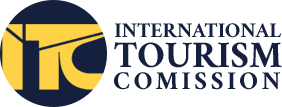Main Aspects
- The programme has a clearly stated mission that is in line with the missions of the school/college and the parent institution and is made available to the public. This mission is present within the program’s printed documents and online as well.
- The Programme is designed with adequate operational autonomy is in line with the Institution's mission and goals, and enables the Programme to successfully carry out its role.
- Regardless of the course's administrative location, the Programme has access to the course concepts.
- "The strategic plan must include the following:
- a) the organization's current mission, vision, and values;
- b) goals;
- c) quantifiable objectives;
- d) target dates for achieving the goals;
- e) identification of the principal individual or organizational unit in charge of achieving the goals; and
- f) a status report on the strategic plan."
- There should be evidence of the curriculum review process, documentation alignment and faculty ownership etc.
- The standard elements of the curriculum should give students information of tourism and hospitality administration
- Through the curriculum, students must be able to determine and put to use the expertise required for operations in the hospitality and tourism industries.
- Through the curriculum, students must be able to develop and combine the essential business skills required to successfully run a hospitality and tourism organization, including: Marketing of goods and services in relation to company operations; Human resource management in relation to business operations.
- The ITC Programme Learning Outcomes are assessed regularly and according to an up-to-date strategy by the programme.
- Information on the prerequisites for entrance, advancement, continuation, dismissal, and graduation is readily available in writing and online. These requirements are equal to or higher than the parent institution's bare minimum requirements.
